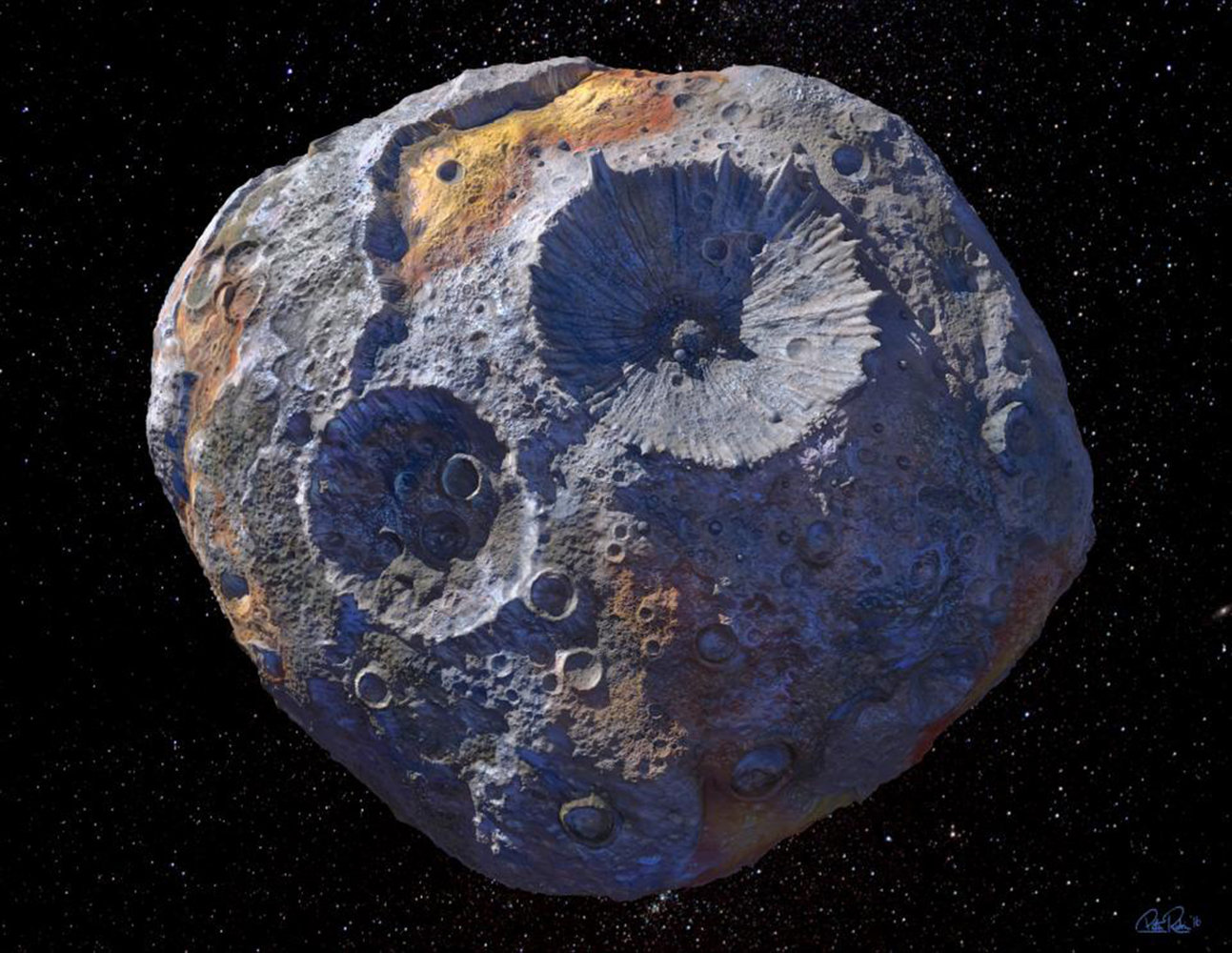Microbes could be used to extract metals and minerals from space rocks
New experiments on the International Space Station suggest that future space miners could use bacteria to acquire valuable resources.
by Neel V. Patelarchive page
November 10, 2020

psyche asteroid
An illustration of asteroid Psyche, thought to be primarily made of metals.
ASU/PETER RUBIN
A species of bacteria can successfully pull out rare Earth elements from rocks, even in microgravity environments, a study on the International Space Station has found. The new findings, published in Nature Communications today, suggest a new way we could one day use microbes to mine for valuable metals and minerals off Earth.
Why bacteria: Single-celled organisms have evolved over time on Earth to extract nutrients and other essential compounds from rocks through specialized chemical reactions. These bacterial processes are harnessed to extract about 20% of the world’s copper and gold for human use. The scientists wanted to know if they worked in microgravity too.
The findings: BioRock was a series of 36 experiments that took place on the space station. An international team of scientists built what they call “biomining reactors”—tiny containers the size of matchboxes that contain small slices of basalt rock (igneous rock that’s usually found at or near the surface of Earth, and is quite common on the moon and Mars) submerged in a solution of bacteria.
Up on the ISS those bacteria were exposed to different gravity simulations (microgravity, Mars gravity, and Earth gravity) as they munched on the rocks for about three weeks, while researchers measured the rare Earth elements released from that activity. Of the three bacteria species studied, one—Sphingomonas desiccabilis—was capable of extracting elements like neodymium, cerium, and lanthanum about as effectively in lower-gravity environments as they do on Earth.
More:
https://www.technologyreview.com/2020/11/10/1011935/microbes-extract-metals-minerals-space-rocks-mining/

